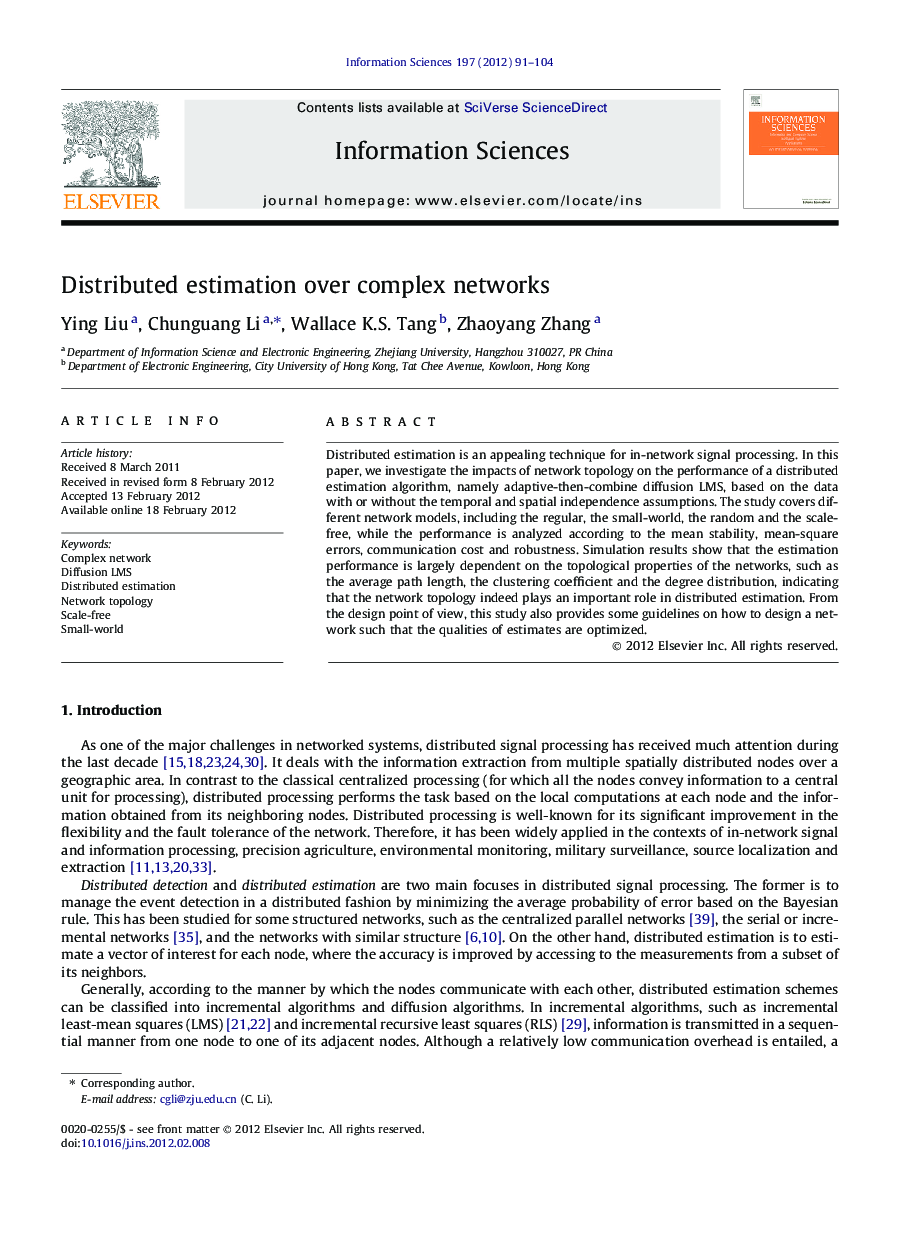| Article ID | Journal | Published Year | Pages | File Type |
|---|---|---|---|---|
| 394233 | Information Sciences | 2012 | 14 Pages |
Distributed estimation is an appealing technique for in-network signal processing. In this paper, we investigate the impacts of network topology on the performance of a distributed estimation algorithm, namely adaptive-then-combine diffusion LMS, based on the data with or without the temporal and spatial independence assumptions. The study covers different network models, including the regular, the small-world, the random and the scale-free, while the performance is analyzed according to the mean stability, mean-square errors, communication cost and robustness. Simulation results show that the estimation performance is largely dependent on the topological properties of the networks, such as the average path length, the clustering coefficient and the degree distribution, indicating that the network topology indeed plays an important role in distributed estimation. From the design point of view, this study also provides some guidelines on how to design a network such that the qualities of estimates are optimized.
